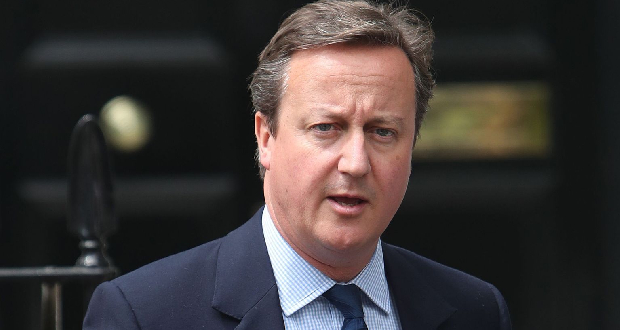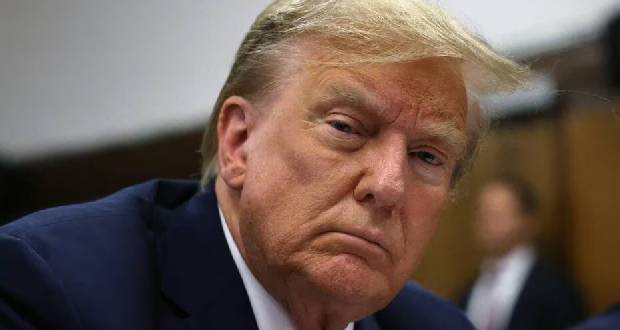Publicité
Martin Luther King’s ‘Dream’ Speech: A defining Moment in American History
Par
Partager cet article
Martin Luther King’s ‘Dream’ Speech: A defining Moment in American History

Among the different personalitieswho combatted racial inequalityin America, the name of MartinLuther King stands out. He waseven entitled man of the yearby Time magazine in 1963.
Tes Sorensen, President John F. Kennedy’s speechwriter said “the right speech on the righttopic delivered by the right speakerin the right way at the rightmoment can ignite a fire, changemen’s mind, open their eyes, bringhope to their lives and in all theseways, change the world….”
Remember Winston Churchill’s wartime speeches like “ we shall fight on the beaches, ourfinest hour…” that are appealing not only in contents but also couched in a flowery, metaphorical language that helped boost up the morale of the British army to the point that it was said of Churchill that he “mobilizedthe English language and sent itto battle”.
President Kennedy’s ‘World Peace’ address at the American university in June 1963 calling for a re-examination of “Americans’ own attitudes”at the height of the Cold war and shortly after the Cuban missile crisis, much to the surprise of the American people, eased the simmering tension and brought about a détente in the US/Soviet relationship.
But the early 60s also witnessed a ground-breaking event. Though Kennedy gave his tacit support to the Civil rights movement and Lyndon B. Johnson got the Civil Rights Act and Voting Rights Act passed putting blacks and whites on the same pedestal as never before, it was Dr Martin Luther King’s historic -“I havea dream”- speech delivered on 28th August 1963, that American Historians claim was a defining moment in American history. King’s speech stirred America’s conscience that the time had arrived to change the centuries-old racist mindset engulfing the country and chart a new course where the US could justly be able to assume its leadership role of the “free world”.
King’s speech stands out as a soaring rhetoric bursting with metaphors and poetry. Analysts found it a well researched piece drawing references from Biblical passages and such documents as the Emancipation Proclamation, the US Declaration of Independence and the US Constitution. The impact of the eloquence was so resounding that Time magazine went about to confer upon King the man of the year title in 1963. King outpaced in the title race a serious contender, John F. Kennedy, whose “World Peace” speech a bit earlier had a positive influence in that it calibrated the minds of angry Americans into accepting peace thus avoiding a possible, if not military, confrontation with Khrushchev’s Soviet Union, a gesture which led to the nuclear Non-Proliferation Treaty.
That was followed in 1964 by the award to King of the Nobel Peace Prize at the young age of thirty-five, a distinction which even escaped the no less famous Mohandas Gandhi whose ideas of nonviolence King pulled into his own synthesis. Time also ranked some years ago the ‘dream’ speech in the ten best speeches ever delivered in world history.
On the steps of the Lincoln Memorial in Washington, an impressive crowd of 250,000 people with a large number of whites gathered to listen to King’s passionate demands for ‘jobs and freedom’. Millions watched on television. The “March on Washington” as it became famously known was the culmination of black agitations and protests against abuses and discriminatory practices suffered by blacks. Despite the Emancipation Proclamation pronounced in 1863, King said the “life of the Negro isstill crippled by the manaclesof segregation and the chainsof discrimination”.
Pressure for the introduction of civil rights legislation had a timid beginning in 1941 but started gathering momentum in the 50s following a series of incidents described as outrageous. Like for example, the Montgomery bus incident in 1955 when Rosa Parks, a black woman, was jailed for refusing to surrender on a bus her seat to a white man. The segregation law required that blacks were to be seated at the back and had to give up seat to a white who could not find one. There was the incident of the six year old black girl. A group of whites spat on her face because she wanted to go to the same school as white children. A 14 year old boy was hunted down and murdered because he dared make some remarks to a white woman. Blacks even with high education were debarred from voting. The segregation law was applied in all its harshness. “Segregation yesterday,segregation now and segregation forever”, proclaimed George Wallace, a state Governor.
In public places, the notice “Whites only” prominently displayed reminded blacks not to tread in reserved zones. The irony was that as a super power the US was teaching lessons of freedom and democracy to others when apartheid was raging in its own land. Civil rights’ activists led by Martin Luther King cried foul. Enough was enough.
The call for boycott of public transport by black Americans was massively followed and lasted for almost a year. Protest marches soon spread to several states and were met with police brutality until the US Supreme Court struck out the segregation law. That was already a triumphant outcome for King’s movement. Emboldened by this success, King and his civil rights activists conducted peaceful civil disobedience demonstrations. Even Kennedy endorsed King’s movement and decided to push forward the civil rights bill. Kennedy knew well that the bill would face a tough ride through Congress because of segregationists’ opposition and urged King to abandon his protest marches because these were “ill-timed”. “Wewant success in Congress, not justa big show at the Capitol,” said the President to King.
“Frankly, I have never been engaged in a direct action”,retorted King, “that did not seem ill-timed...” Hisconvictions in his deeds andaction, his profound faith inthe goodness of men andhis belief in the great potentialof American democracycould hardly dampen hiszeal to fight for justice andequal rights for the American
people, whites or blacks. “We are not satisfied and wewill not be satisfied,” he said, “until justice rolls down likewaters and righteousness like amighty stream”.
The historic “March on Washington” on 28th August 1963 claiming “Jobs and freedom” opened a new chapter in American history. With many Hollywood, music and literary celebrities mingling with the crowd, the mass rally at the Lincoln Memorial was designed as well to turn pressure on the Kennedy’s administration to expedite civil rights legislation. It was here in the speech delivered that King crafted his vision of a new America where blacks and whites were to enjoy equal rights. The “dream” speech has been hailed by Time as one of the ten greatest speeches ever delivered since the 4th century B.C when Socrates pleading his innocence in front of the Athenian judges ended his rhetoric with this line – “the hour of departure hasarrived, and we go our ways. Ito die and you to live. What isbetter God only knows”.Likewise King’s speech was impregnated with emotion and lyrical cadence as he repeatedly used such refrains as –“ I have a dream” (hope for a better future), “Now is thetime” (for immediate action) and “Let Freedom ring” ( for equality and justice) so powerfully driven to stir the people’s moral conscience.
King started his speech by going back to the promises made ‘100 years ago’ through the “magnificent words” of the constitution and the Declaration of Independence that all men-black and white “wouldbe guaranteed the inalienablerights of life, liberty and the pursuitof happiness”. Nothing happened since then. That was like a promissory note, he said, thrown to the winds. Instead of fulfilling this sacred obligation, America has given “the negro people a bad cheque,a cheque which has come backmarked ‘insufficient funds’.” He refused to believe that the American “bank of justicehas gone bankrupt’’ for the “negrolives, one hundred years later,on a lonely island of povertyin the midst of a vast ocean ofmaterial prosperity.”So he said “now is the time” to remind America that it had defaulted on this promissory note. There was a “fierce urgency”, he said for remedial action so that justice became a reality for “all of God’s children”. On a warning note, he said business was not going to be as usual henceforth for “the whirlwindof revolt will continue to shake thefoundations of our nation untilthe bright day of justice merges”.“Now is the time”, he said, “to rise from the darkand desolate valley of segregationto the sunlit path of racialjustice”. In so doing, the nationwould be lifted from the quicksandof racial injustice to thesolid rock of brotherhood.But he said the militancy of the black population should in no way lead to the distrust of the white people for “their destinyis tied up with our destiny…”King was about to wind up the speech when the singer Mahalia Jackson, a friend of King, standing nearby shouted at King “Tell them about your dream, Martin, tell them about your dream”.From there, King pickedup the thread of his speech spontaneously. Departing from his prepared text, he started to dwell on the dream he held so dear, a dream “deeply rooted in the American dream”.The dream ‘sequence’ part was not to be found in the original text, it is said but as a skilled preacher used to delivering sermons, King carried on extemporaneously defining his dream studded with a string of hopes: “One day, the sons offormer slaves and sons of former slave owners will be able to sit down together at the table of brotherhood”. “One day even the state of Mississippi, a state sweltering with the heat of injustice and oppression will be transformed into an oasis of freedom and justice.” “One day, my four little children will one day live in a nation where they will not be judgedby the colour of their skin but by thecontent of their character”. “One day little black boysand black girls will be able tojoin hands with little whiteboys and white girls as sistersand brothers”.America could only become a great nation, he said, if his dream was realised. King ended his speech with the ‘freedom refrain’ that blacks should be freed from the yoke of segregation. He wished he could hear the air of ‘freedom ringing’ from hilltops and mountains of America, from every village and every hamlet, from every state and every city so that “we will be able to speed thatday when all of God’s children,black men and white men, Jewsand Gentiles, Protestants andCatholics will be able to joinhands and sing in the words ofthe old Negro spiritual: ‘ Free atlast! Free at last!’” But as King stated “1963 is not an end but a beginning”. Rightly so for the speech aroused America’s moral conscience and much more after King’s assassination in 1968. A new era started creeping in. On the heels of that historic occasion followed a great leap with the Civil Rights Act (1964) and the Voting Rights Act (1965) piloted by President Johnson. 50 years ago, it would not have occurred in the wildest dream of any American that of all things the country could have elected one day a black President. Barack Obama who will commemorate the ‘March on Washington’ at the Lincoln Memorial this Wednesday would not have become President of the US, political analysts argue, without the moral and political transformative leadership of Dr Martin Luther King.
Publicité
Les plus récents






